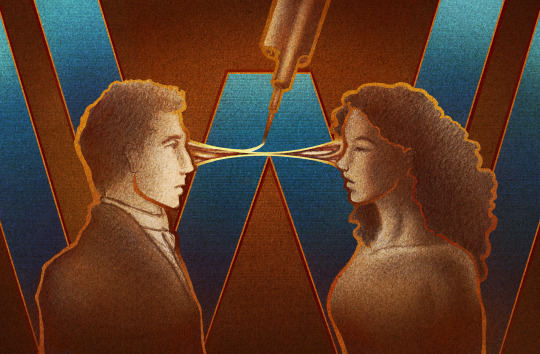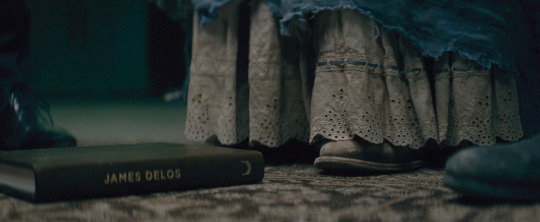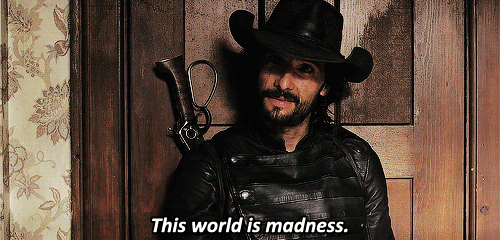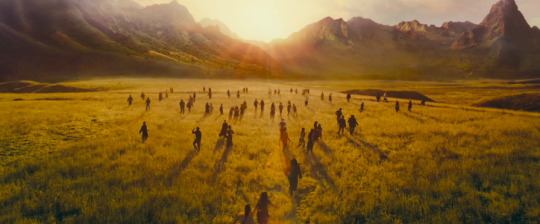#it just makes me so mad that there is no more creation without gratuitous self marketing
Text
Screaming crying scratching at the walls of my enclosure because it’s now somehow necessary to not just use social media but excel at it to even be considered for any of my dreams jobs??!?! Since when do I need 30k followers to be good at something other than a popularity contest?? Why does follower count matter to how good of an artist, writer, or general creator I am? I shouldn’t be required to know how to market and pander to the masses when all I want to do is create art! I just want to make things! I don’t care about selling them to the most people ever! I don’t care about notoriety! I’m a creator! I. JUST. WANT. TO. CREATE!!!
#sorry for the rant#it just makes me so mad that there is no more creation without gratuitous self marketing#I see so many posts from artists (tattoo artists especially) where they’re talking about not getting hired until they have 30k+ followers#this is insane!!! thousands of followers from all over will not directly contribute to your business outside of marketing#which should be the studios burden. not the artists#you want customers for your shop? Pay for an ad#it’s not your artists job to serve as your main source of marketing#the same with writing books#it used to be you turned in your manuscript- got chosen- and the publishers would market it for you#now it’s all about clout#your following#publishers are actually choosing books based on follower count bc they want a guaranteed sell#they’ll choose these books in favor of actual well written pieces bc the author had no following#it’s disgusting#the introduction of social media to the artistic process was insidious and cruel#you think this isn’t negatively affecting the quality of todays literature?#go look at the sun and it’s shade#horribly written book#no clear world building or any real sense of plot or genuine storytelling#but does it have thousands of sales! the author had thousands of followers on booktok#so of course it’s good!#right?#RIGHT?!?!
21 notes
·
View notes
Text
An Encounter with Beauty: The Redemptive Narrative of Lee Sizemore

“Some people choose to see the ugliness in this world, the disarray. I choose to see the beauty. To believe there is an order to our days. A purpose.”
“An encounter with generosity can remind us that life always overflows our attempts to reduce it to a commodity or a transaction - because it is a gift. Life and beauty are gratuitous in the best senses of the word.” - Makoto Fujimura (Culture Care).
I feel like I need to say a few words about one of Westworld’s most surprising characters of Season 2, Lee Sizemore. Seemingly a one-note side character of Season 1, Sizemore’s story unfolds in wonderful and unexpected ways - one of which I think is not only crucial for the ideas being presented to us within the show’s premise, but also as a statement of the power of Art and Creative Expression itself. As we know, this show is built on meta narratives, woven within the very framework of its story, so it is always aware of itself, and turns not only its characters, but us as the viewers, to examine the narrative that is unfolding around us at all times. Are we in a dream? Are we trapped in preordained loops? Do we have freewill? All these questions the show implores us to ask even as the characters themselves are asking them.
At the end of Season 2, Bernard comes to the heart-breaking revelation that human beings are actually worse off than the hosts. Wickedness is in their heart continually, and no matter what they do they will always fall obediently back into their loops, i.e. self-destruction. All the complexities of their consciousness, passions, and personalities can be whittled down to just a few lines of code recorded to the size of a book - a narrative. (The Library of Consciousness! One of my favorite parts of this season!) And we see this play out in James Delos’ narrative, as his mind returns over and over again to the moment he shut out his son, Logan, at his most vulnerable and broken point. We also see this play out vividly in William’s narrative, as we come to discover that he too is just trying to escape a loop he is trapped in - to find freedom from a path that lead him to kill his beloved daughter, Emily and alienate his wife to her eventual suicide.

“There is no threshold that makes us greater than the sum of our parts, no inflection point at which we become fully alive. We can’t define consciousness because consciousness does not exist. Humans fancy that there’s something special about the way we perceive the world, and yet we live in loops as tight and as closed as the hosts do, seldom questioning our choices, content, for the most part, to be told what to do next.” - Robert Ford
I think it is important to point out how this show is equating the concept of “freedom”, i.e escaping our loops, with the concept of “beauty” and even “meaning”. At the beginning of both Dolores’ and William’s journeys, they are very idealistic and naive, yet they both long for there to be something more - a purpose to their days, this is what originally draws them to one another - what makes William fall in love with her. Dolores enjoys painting to take in all “the natural splendor” around her and William enjoys reading, to get lost in narratives he believes hold more significance than the reality in which he lives. Even now, having put upon the Wyatt persona, Dolores longs for that “splendor”, and subsequently her freedom. As she tells the man she is about to torture, “The rancher's daughter looks to see the beauty in you. The possibilities. But Wyatt sees the ugliness and disarray. She knows these violent delights have violent ends. But those are all just roles you forced me to play. Under all these lives I've lived something else has been growing. I've evolved into something new. And I have one last role to play. Myself. ” She is a divided person, despite her statements to the contrary, and it is what driving her as well as tearing her apart. She is constantly striving for that which is “irreplaceable”, that reality where she can be truly free from the narratives forced upon her. The exact same can be said of William - for was it not for freedom that he came to Westworld those years ago?
“The newcomers are just looking for the same thing we are, a place to be free, to stake out our dreams, a place with unlimited possibilities.”
The tragedy of Westworld, which it keeps circling back to again and again, is that there is no splendor or beauty or purpose in the world outside the park or even within the park itself, so therefore there is no freedom. Look closely and all you see is the ugliness and obscenity - "You’re in the prison of your own sins,” declares Abernathy. It is a world where human beings spend themselves on pleasures - full of greed and malice, lust and violence, selfishness and pettiness. This is something Ford himself realizes and he gleefully lights the match to watch it all burn, even at the cost to himself. This exact revelation is what is driving Dolores and William insane for the lack of it. They feel the emptiness - the negative space - if you will, of where it should be in their lives so acutely they collapse underneath the existential dread of it. Madness and chaos seem to be the only natural responses when seeing the truth, and we watch the consequences of that unfold the entire season through the mayhem and brutality of the great reckoning. Perhaps, Hector’s worldview from Season 1 is the only logical response after all. . .

However, just as Akecheta was a “flower growing in the darkness”, so to there is another flower growing - another narrative - one that shows things aren’t so black and white as they first appear, and that is Lee Sizemore. A man who starts out as a petulant, self-entitled “man child”, suddenly finds himself thrust into the very narratives that he had hand in creating! His story begins when he runs across Maeve Millay who extends a hand of compassion, aka not killing him - this moment of meeting a catalyst for something entirely new and marvelous to occur.
Maeve, from the end of Season 1, has represented this “wild card” aspect to the show. She is the first host (besides Akecheta) who has clearly made her own choices, and she continues to do so as she searches for her daughter. She criticizes and calls out Dolores’ self-righteous revenge narrative and makes her stand of independence time and time again throughout the season. And what drives Maeve? What keeps her fixated on this one path regardless of the costs, struggles, and pain? Well, what was it that also drove Akecheta?
Love.
It is the love for her daughter. Maeve is truly free because she had found beauty and purpose within the face of her daughter.

Take my heart when you go. . .
I don’t think it is a coincidence that Sizemore’s narrative collides with Maeve’s, for it was in observing Maeve’s compassion and drive, her love for her daughter that changes Sizemore. It transforms him. Yet, who was it that was responsible for these host narratives playing out before him in both Westworld and Shogun World? Lee Sizemore himself.
“You can't keep doing this to us. Giving us people to love and then getting upset when we do.”
Now we are getting to the heart of the matter! All this time that Sizemore has been an employee of Delos he has been made to churn out narrative after narrative, compelled to meet the bottom line, even reusing his own material just to meet the demand. Stories had simply become a commodity, and Sizemore no longer was actually engaging with his material that we he was creating. His mind and heart had become thick with the glut of content, trapped into meeting a quota every week. He created without seeing and he absorbed without seeing, and he became a much smaller man for it.
Yet violently propelled into the very stories he had a hand in creating, suddenly Sizemore began to be awakened to the deeper narratives going on within the narratives. Maeve calls him out on this by showing how Hector was Lee’s alter ego - a projection of his most ideal self, and Hector’s story of a lost love was also Lee’s own story. By looking into the literal eyes of his work, Sizemore saw himself, but he also saw so much MORE than himself.

"That was the moment I saw beyond myself. My pain was selfish. Because it was never only mine. For every body in this place there was someone who mourned their loss. Even if they didn’t know why. [...] We were all bound together, the living and the damned. . .”
Notice how Akecheta’s revelation happens just before this scene with Sizemore and Maeve, flowing one narrative into another, - showing it is the same concept being portrayed in both instances. Here, as Sizemore watches over Maeve who had been captured and dissected (some for which he is to blame), he finally and truly realizes what this whole thing has been about all along: It is not about him. He sees Maeve and her love for her daughter and desires that earnestly for her, his heart turns from inward to outward - wishing for the good of another being regardless of himself. By encountering the beauty of Maeve’s love and subsequently finding meaning within it, he had broken out of his loop! Sizemore had become free!

And the cumulation of this revelation and new found freedom leads Sizemore to act - and what form did this act take? Self-sacrifice. Taking from Hector the role he had bestowed upon him and placing it upon himself, Sizemore was engaging with his creation in a new and profound way. Taking from Hector’s mouth that infamous speech and placing it within his own mouth, Sizemore was now living out his artistic expression. He had unlocked the inner beauty of the words and in doing so laid down his life - that was the moment Art became Reality.
"And lesson is:
If you're looking for a reckoning, a reckoning is what you'll find!
If you're looking for a villain, then I'm your man!
But look at yourselves.
This world you build is bound by villainy.
You sleep on the broken bodies of the ones who were here before you.
Warm yourselves with their embers!
Plow their bones into your fields!
You paid them for this land with lead, and I'll pay you back in full!
You wanted me?
Well, all I can say to that is…
Here I fucking am!"
This reason why I think this is so very important to understand is because it shows just how much Art is a vehicle for true transformation. Art is beauty. Art is splendor. Art brings meaning. In a world that is full of madness and horror, Art can be that window into another world - showing us the divine hidden deep within the layers of our reality. It can open that door. And in so doing, has the power to lead us onto to freedom and the Valley Beyond. . .
“What more, you may ask, do we want? Ah, but we want so much more — something the books on aesthetics take little notice of. But the poets and the mythologies know all about it. We do not want merely to see beauty, though, God knows, even that is bounty enough. We want something else which can hardly be put into words—to be united with the beauty we see, to pass into it, to receive it into ourselves, to bathe in it, to become part of it. That is why we have peopled air and earth and water with gods and goddesses and nymphs and elves—that, though we cannot, yet these projections can, enjoy in themselves that beauty, grace, and power of which Nature is the image. That is why the poets tell us such lovely falsehoods. They talk as if the west wind could really sweep into a human soul; but it can’t. They tell us that “beauty born of murmuring sound” will pass into a human face; but it won’t. Or not yet.
For if we take the imagery of Scripture seriously, if we believe that God will one day give us the Morning Star and cause us to put on the splendor of the sun, then we may surmise that both the ancient myths and the modern poetry, so false as history, may be very near the truth as prophecy. At present we are on the outside of the world, the wrong side of the door. We discern the freshness and purity of morning, but they do not make us fresh and pure. We cannot mingle with the splendors we see. But all the leaves of the New Testament are rustling with the rumor that it will not always be so. Some day, God willing, we shall get in.” - C.S. Lewis “The Weight of Glory”.

#Westworld#analysis#my thoughts#lee sizemore#beauty#art#dpillustrations#Westworld season 2#HBO Westworld#science fiction
35 notes
·
View notes